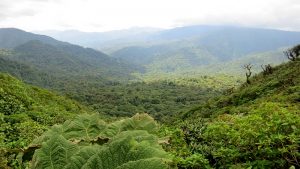Bodies beautifully painted and covered with natural elements such as flowers, leaves and fruits: this and much more in the wonderful shots by German photographer and journalist Hans Silvester, who at the beginning of the 2000s travelled across the valley of the Omo river, in southern Ethiopia, photographing their populations and capturing their link with nature.
Silvester’s shots depict tribes of semi-nomadic shepherds, such as the Mursi, the Hamar and the Bodi, who live along the river in a valley rich in history which has been, over the millennia, a crossroads of different cultures and ethnicities and which since 1980 has been a UNESCO heritage site for its immense geological and archaeological value.
The valley crossed by the Omo River – which flows into a large delta into Lake Turkana after a journey of over seven hundred kilometers – was first reached by western explorers at the end of the 19th century. The populations that inhabit it have never been colonized, Christianized or Islamized and have preserved, over the centuries, their ancient culture and their very particular traditions.
Despite not having developed particular forms of craftsmanship or art, the Omo tribes continue the tradition of painting their bodies: all people aged between eight and forty years paint their hair and body with pigments made from sand, earth or ash and decorate it with natural elements, such as flowers, leaves, fruits or branches of shrubs. Men, women and children thus become real living pictures, revealing a profound communion with nature, a harmonious bond that is now unimaginable in the western world.
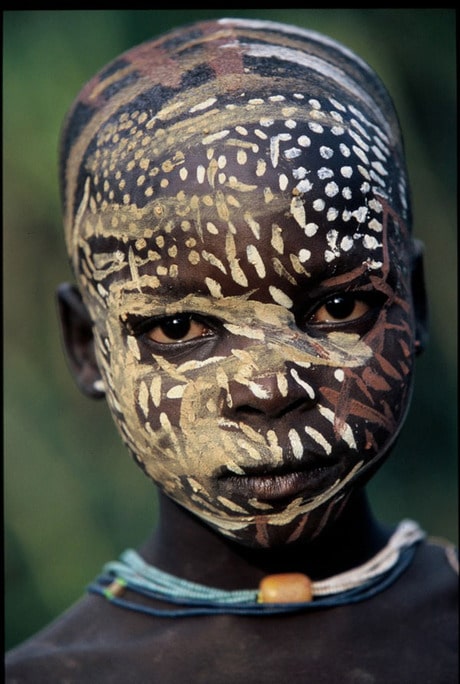
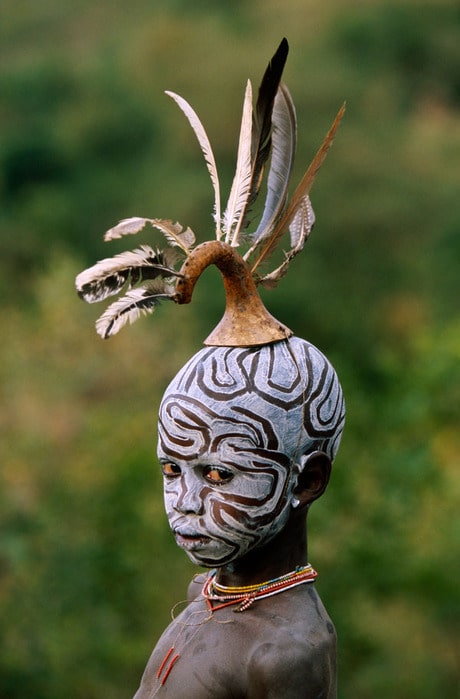
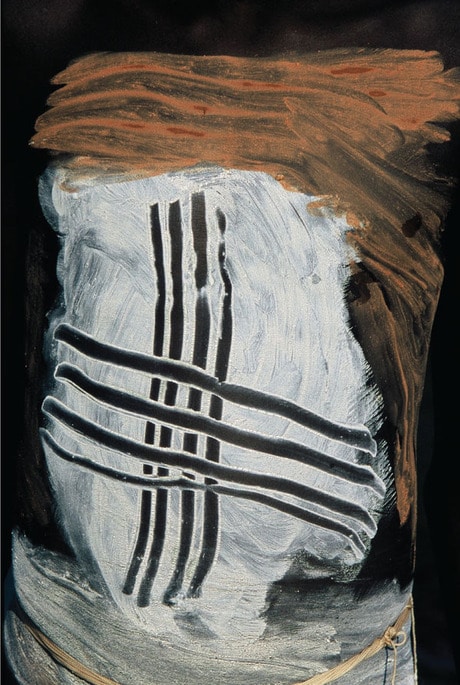
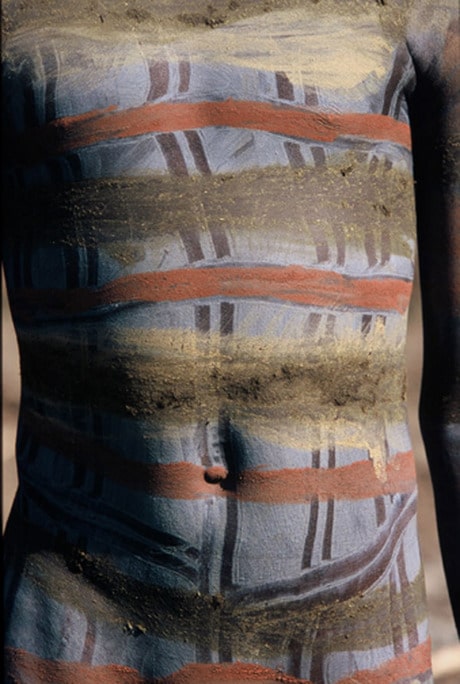
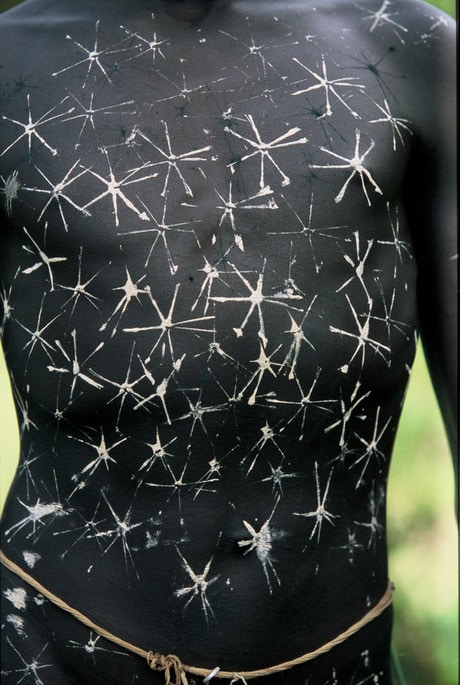
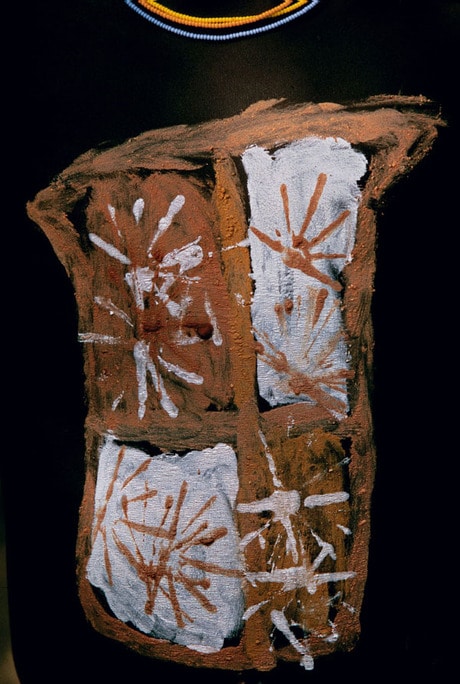
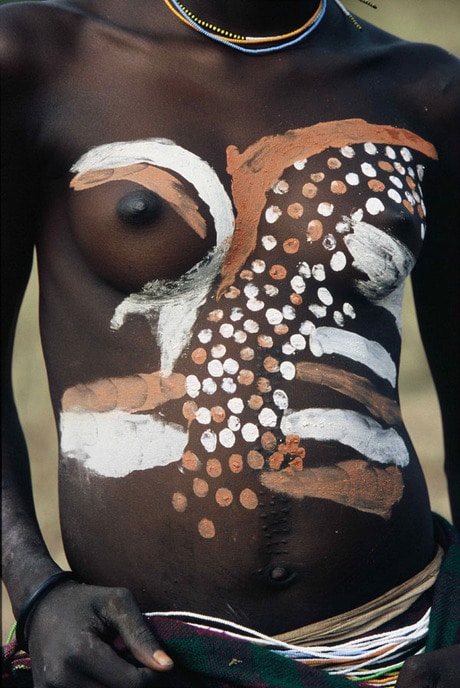
Considered by the Addis Ababa government as a tribe of primitives, the people of the valley live above all on cattle breeding. Recently, their survival is threatened by the construction of a colossal dam on the Omo River, the Gibe III, which will supply numerous plantations with water and energy, supporting the agricultural development of the African country.
The dam is a strongly desired project by the Ethiopian government and its construction has been contracted out to an Italian company. The works started in 2006 and will cause the eviction and “resettlement” of about 200 thousand people.
When the dam is fully operational, the Omo tribes – whose means of survival are linked to the river and its annual floods – will be deprived of the land they have inhabited for centuries and will have to renounce much of their traditions. Suffice it to say that they will no longer be able to move with the flocks, as they have always done, and that in order to be admitted to the “resettlement camps” created for them by the Addis Ababa government, they will have to get rid of the livestock they own.
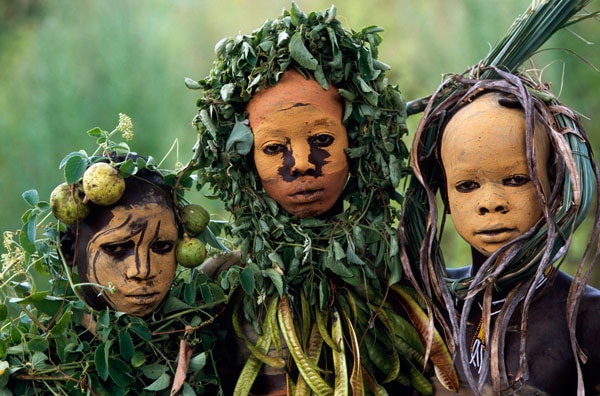
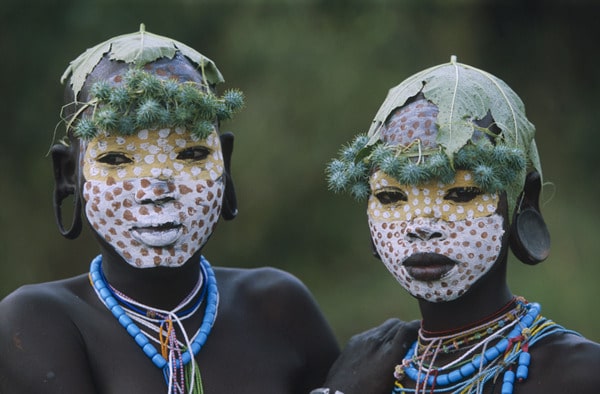
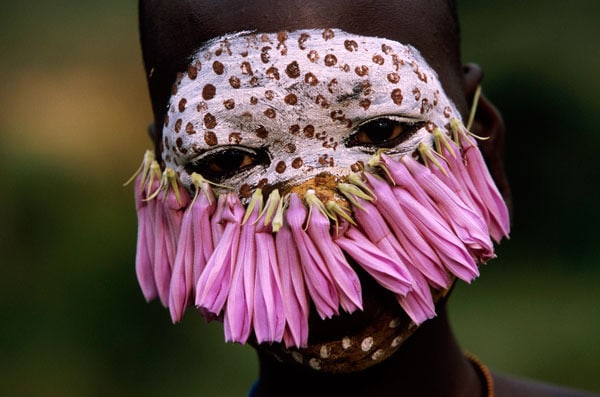
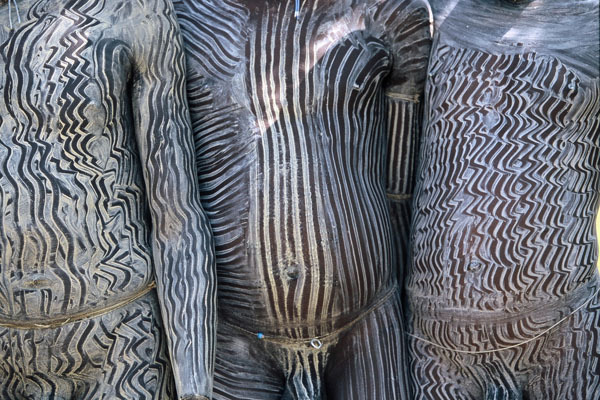
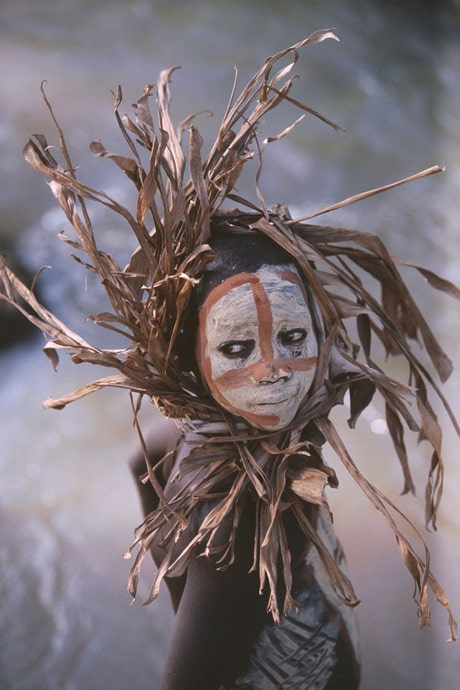
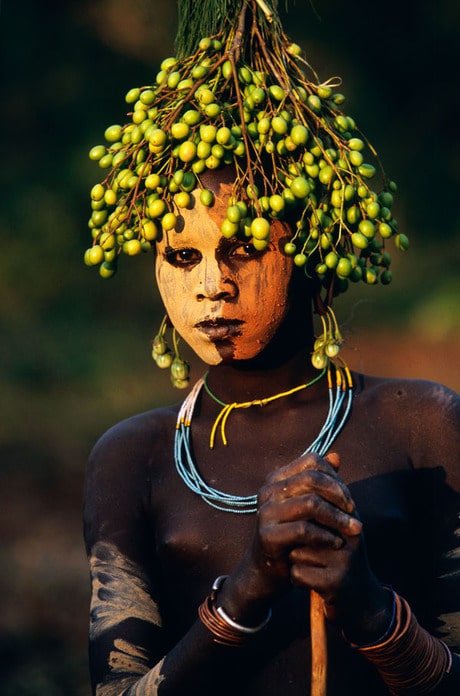
What is worse is that, although it was evident from the outset that the dam would have had a huge impact on the lives of these people, no one felt they had to consult or inform them in advance. You can help by clicking and supporting their cause here.
Photo Credits: Hans Silvester
Sources: GreenMe, Slideshare







